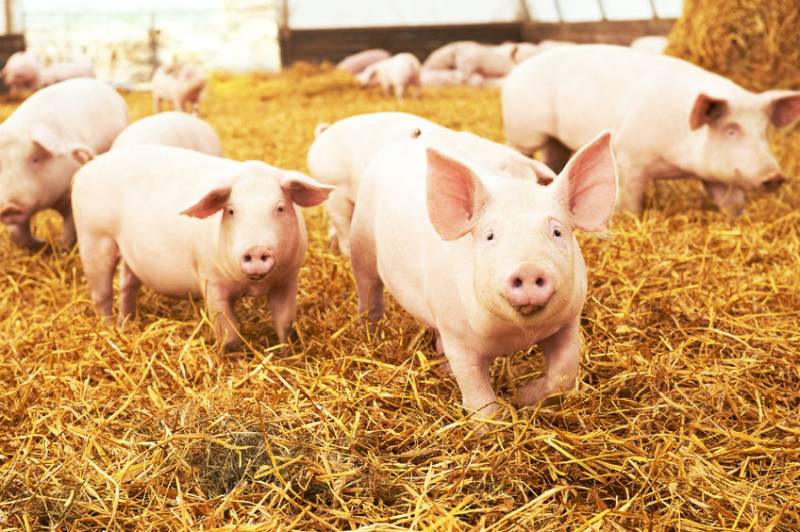Ukraine war: UK pig producers fear sector may not recover

The invasion of Ukraine has moved the UK pig sector to a critical situation, with many producers now fearing it may not recover, farm leaders have warned in a new letter to government.
The pig sector has urged Defra Secretary George Eustice for "urgent, direct support" for producers suffering from the worsening financial situation.
The National Pig Association (NPA) and the NFU's joint letter states that the Ukraine war has moved the sector "from a very challenging financial situation to a critical one from which we fear many will not recover."
The letter from NPA chairman Rob Mutimer and NFU president Minette Batters says: "We ask that you urgently reconsider our request for a financial support package to be made available to pig farmers at the earliest opportunity, similar to those offered by the devolved administrations and many other European countries."
The letter explains to Mr Eustice that pig producers' costs of production are now over £2/kg, as wheat prices have soared on the back of the Ukraine war, alongside rising energy and fertiliser prices in Q1.
Many are now losing in excess of £50 per pig on average as a result of ineffective pricing, penalties and these rising input costs.
This comes on the back of a year of heavy losses, adding up to an estimated £250million in the last year, due to labour shortages in the processing sector.
For many small family farms, there simply isn’t the financial headroom to absorb any additional shocks in an industry, the letter adds.
"Some have already taken the decision to leave the industry with 43,000 sows being removed and others are now seriously considering it.
"There are those too who want to retire but cannot, as the income from the pigs is the only way they can pay off their debts," it says.
"It is, therefore, vital that action is taken swiftly to support farmers whilst processors work through the rest of their backlogs.
"Pressure also needs to be applied to the processing sector to continue to encourage increased throughput and fair prices, ensuring that the backlog is dealt with as soon as possible and limit any further impacts on the farming sector."
The Defra Secretary has been` urged to use the powers in section 21 of the Agriculture Act that enable support to be provided to agricultural producers in England whose incomes are being, or are likely to be, adversely affected by the exceptional market conditions.
"The most severe impacts on incomes resulting from the adverse market conditions are not being felt by the processors, but by the farmers," the letter says.
"However, even though government has acknowledged that there are adverse market conditions affecting the sector, and that financial support is needed to address this, no direct support has yet been offered to farmers, despite the fact that their incomes are the most severely affected by this issue.
"This position is becoming increasingly untenable as the support offered to processors to try to resolve the issue has failed to alleviate the adverse impacts on farm incomes resulting from the situation."
Other nations, competing in the same markets, have supported their own pig sectors. The Scottish government has introduced two packages, including a 'Pig Producers Hardship Support Scheme', totalling £1.4 million.
And in Northern Ireland, a similar compensation package has allowed pig farmers to access £3.6 million in emergency funding.
Other countries across Europe are using the EU temporary state aid framework to provide direct support for pig producers, including Belgium, France, Ireland, the Netherlands and Poland.
"We cannot overstate the urgency of the situation, as our sector is now more than ever, perilously close to collapse and we look forward to your timely response," the letter concludes.








